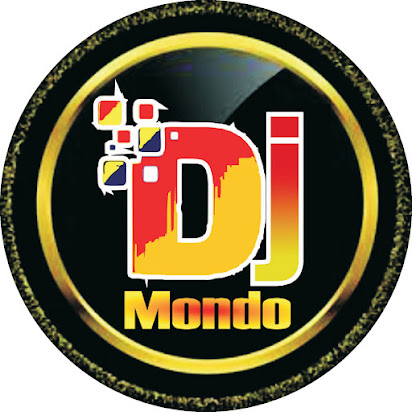The Future of Music Education: Apps and Online Tools in 2025
Music education is undergoing a revolutionary transformation, fueled by technology and innovation. In 2025, apps and online tools have made learning music more accessible, interactive, and personalized than ever before. Whether you’re a budding musician or an educator seeking new methods, this guide will explore how these tools are reshaping the future of music education.
Why Technology Matters in Music Education
Technology has democratized music education. No longer confined to expensive lessons or traditional classrooms, anyone with a smartphone or computer can access quality learning resources. This shift is empowering individuals worldwide to explore music at their own pace, regardless of location or budget.
Key Benefits:
-
Accessibility: Apps and tools make learning available to all, breaking geographical and financial barriers.
-
Interactivity: Gamified apps and virtual lessons keep learners engaged.
-
Customization: Personalized learning paths cater to individual needs and skill levels.
Top Apps Shaping Music Education in 2025
1. Yousician
Yousician remains a favorite for learners of all ages. This app provides interactive lessons for guitar, piano, bass, ukulele, and vocals. Its real-time feedback feature allows users to improve their technique and timing.
Why It Stands Out:
-
Gamified learning experience.
-
Progress tracking to motivate users.
-
Wide range of skill levels, from beginner to advanced.
2. Simply Piano
Designed for beginners, Simply Piano is an intuitive app that teaches users to play the piano step-by-step. Its easy-to-follow tutorials and instant feedback make it ideal for those just starting their musical journey.
Key Features:
-
Integration with real keyboards or virtual keyboards.
-
Fun, bite-sized lessons.
-
Adaptive learning for personalized pacing.
3. Soundtrap by Spotify
Soundtrap is a collaborative online studio that allows users to create and record music. It’s particularly popular among educators and students for its team collaboration features.
Why Educators Love It:
-
Easy integration into online classrooms.
-
Supports group projects and co-creation.
-
Offers tools for recording, editing, and mixing tracks.
4. Melodics
For aspiring drummers, pianists, and electronic music producers, Melodics offers lessons that feel more like a video game than traditional instruction.
Notable Features:
-
Focuses on rhythm and timing.
-
Offers practice sessions with popular songs.
-
Adaptive difficulty to keep learners challenged.
5. Tonara
Tonara is a digital platform designed for music teachers. It helps manage lessons, assignments, and communication with students in one place.
Key Benefits:
-
Allows teachers to track student progress.
-
Offers interactive tools for assigning homework.
-
Enhances student engagement through gamification.
Emerging Technologies Revolutionizing Music Education
AI-Driven Learning
Artificial Intelligence (AI) has become a game-changer in music education. Apps powered by AI analyze a learner’s performance and provide tailored feedback. AI also creates personalized lesson plans, ensuring students focus on areas where they need improvement.
Virtual Reality (VR)
VR is bringing immersive experiences to music learning. Imagine practicing piano in a simulated concert hall or mastering drumming techniques in a virtual studio.
Augmented Reality (AR)
AR apps overlay virtual elements onto the real world, making learning interactive and fun. For example, AR piano apps project visual guides onto real keys, simplifying note recognition and fingering.
Blockchain for Credentialing
Blockchain technology is being used to verify certifications and achievements in music education. Digital credentials can help learners showcase their skills to potential employers or collaborators.
The Role of Online Tools in Music Education
Online tools complement apps by offering additional resources and platforms for learning. Here are some of the most impactful online tools in 2025:
MasterClass
MasterClass offers lessons from renowned musicians like Hans Zimmer, Alicia Keys, and Herbie Hancock. These courses provide unique insights into the craft and career of music.
Udemy and Coursera
Platforms like Udemy and Coursera host a variety of music courses, ranging from music theory to production. These are ideal for learners who prefer structured curriculums.
YouTube
YouTube continues to be a treasure trove for free music education content. Channels run by professional musicians offer tutorials, tips, and performance breakdowns.
How Educators Are Adapting in 2025
Traditional music educators are embracing technology to enhance their teaching methods. Here’s how:
-
Blended Learning Models: Combining in-person lessons with digital tools for a more rounded experience.
-
Gamification: Using game-like features to make learning enjoyable.
-
Hybrid Classrooms: Incorporating online tools like Zoom and Google Classroom to facilitate remote lessons.
Example: A piano teacher might use Simply Piano for practice assignments while teaching advanced techniques during in-person lessons.
Challenges in the Adoption of Technology
While technology offers numerous benefits, it also comes with challenges:
-
Digital Divide: Not everyone has access to the necessary devices or internet connection.
-
Over-Reliance on Technology: Excessive use of apps can lead to a lack of personal connection with instructors.
-
Learning Curve: Educators and students may require training to use these tools effectively.
Solutions:
-
Governments and organizations can invest in infrastructure to bridge the digital divide.
-
Blended learning can ensure personal interaction remains a part of education.
The Future of Music Education: What’s Next?
The future of music education lies in even more advanced technologies and collaborations. Here’s what we can expect:
-
AI-Composed Lessons: Personalized courses designed entirely by AI based on a student’s interests and goals.
-
Global Music Communities: Platforms that connect learners worldwide for collaboration and exchange of ideas.
-
Wearable Tech: Devices that provide haptic feedback to guide learners in real-time.
Conclusion
The future of music education is bright, innovative, and inclusive. With apps and online tools, learning music has become more accessible than ever, allowing anyone to explore their passion and develop their skills.
As we embrace these advancements, it’s essential to strike a balance between technology and human connection. After all, music is not just a skill—it’s an art form that thrives on emotion and interaction.
Whether you’re a student eager to learn or a teacher looking to enhance your methods, now is the perfect time to leverage these tools and be part of the next chapter in music education.


